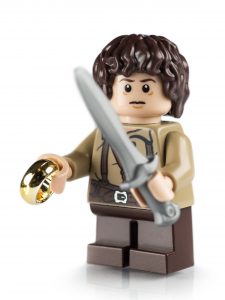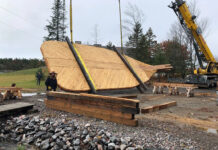- According to a research study by Smokymountains.com, wilderness travelers most often get lost due to leaving the trail (41 percent), bad weather (17 percent) and falling off the trail (16 percent). The search for a lost hiker or hunter averages 10 hours.
- There’s an estimated 50,000 search and rescue missions in the U.S. each year, and 40 percent occur in national parks. Of those cases, day hikers made up 42 percent of SAR missions from 2004 to 2014. That’s almost four times the number of overnight backpackers needing rescue, the next closest group at 13 percent. Day-trippers are especially vulnerable when lost because they are often traveling without layers, shelter and food.
- For centuries, scientists tried to explain how animals migrate without getting lost. Magnetoreception—the ability to sense Earth’s magnetic field—has become an increasingly popular theory. It explains how monarch butterflies are capable of following routes so long their great-grandchildren complete the journey, and how bar-tailed godwits depart Alaska and fly for eight days and nights over featureless water before arriving in New Zealand, 7,000 miles away.
“Shortcuts make long delays.”—Pippin to Frodo Baggins, authorities
on the subject.
| Photo: istockphoto.com/
ninjaMonkeyStudio - In 1923, a collie mix traveled 2,800 miles on his own back home to Oregon after he was lost while his owners visited family in Illinois. When Bobbie The Wonder Dog died years later, more than 200 people attended his funeral and celebrity canine Rin Tin Tin lay a wreath at his grave.
- If lost, remember the mnemonic STOP. Stop—sit down and don’t panic. Think—what do you know about your situation and location? Observe—gather information that can help you figure out where you are. Plan—consider possible courses of action, and choose one. Often staying put is the best bet for being found.
- No film has inspired as much misplaced anxiety about being lost in space as 2013 box office hit, Gravity, starring Sandra Bullock untethered from a space station. Of the 536 astronauts and more than 200 spacewalks, no human has ever been lost in space.
- Getting lost isn’t always bad. In 1947, a shepherd went in search of a lost goat in the hills near the Dead Sea. He found a cave he’d never seen before and inside were clay pots containing old scrolls. Scholars declare the 2,000-year-old Dead Sea Scrolls the most significant manuscript find of all time.
- According to the U.S. National Park Service, even day-trippers should carry a navigation system, sun protection, insulation, illumination, first aid kit, fire making supplies, a small repair kit, food, hydration and an emergency shelter. Always leave a detailed plan of your route with someone you trust.
“Shortcuts make long delays.”—Pippin to Frodo Baggins, authorities
on the subject. | Photo: istockphoto.com/ ninjaMonkeyStudio









We coul learn from bar-tailed godwits. So we aren’t born with built in magnetoreception. But we do have this nifty device — it’s called a COMPASS. Carry one, and learn to use it.
Being “lost”, or perhaps, just not sure where you are exactly, isn’t so terrible. As the author implies, with a minimum of the right kind of gear, you, not the elements, will dictate your next move.
When in the woods, my guiding principal: It’s OK to not know where I am. Nope, the time to get antsy is when I don’t know where I started.